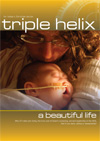Why STI rates continue to rise
Review by Trevor Stammers
Programme Director in Bioethics and Medical Law, London
Public Health England (PHE) has released figures showing the highest annual levels of sexually transmitted infections (STIs). (1) There were 448,422 recorded hospital clinic diagnoses – a rise of 5% from 2011, with under-25s experiencing the highest rates. Chlamydia accounted for 46% of the total diagnoses. The rise in gonorrhoea diagnoses of 21% is a particular cause for concern as it will fuel the problem of antibiotic resistance highlighted earlier this year. (2)
Dr Gwenda Hughes, head of STI surveillance for PHE, said 'Too many people are continuing to have unsafe sex'.
If by 'unsafe sex' Dr Hughes meant sex with a partner you have only just met, then this makes good sense. If Hughes merely equates 'unsafe sex' with 'sex without a condom' which is how most of her audience will understand it, then this is not such sound advice. Sex with a condom may be safer than sex without one, but a lot depends on the sexual partner too and the sexual activity involved. Both taboo subjects, it seems, for PHE.
Such coyness wrecks lives. Spin about the rather modest effectiveness of condoms for many non-HIV STIs continues to be the norm in literature. The latest edition of the Faculty of Sexual and Reproductive Health Guidance on Barrier Methods for Contraception and STI Prevention (August 2012) (3) is typical of the blithe reassurances proffered on the flimsiest of evidence. For example, page 7 asserts 'the two most rigorously designed studies provided evidence to support a reduced risk of syphilis transmission with consistent use of male condoms'. (4) What the guidance fails to say is that the single reference given reviews twelve studies and the only one showing a statistically significant reduced transmission of syphilis was in a sample of Bolivian sexworkers (5) – hardly a comparable risk-group to UK population.
Until young people understand that mutual virginity before marriage, and faithfulness within it, is the only way to enjoy truly safe sex, STI rates will continue to increase.































